The simple act of becoming an organ donor has major benefits. See how far your gift can go — and why more donors are desperately needed.
7:00 AM
Author |
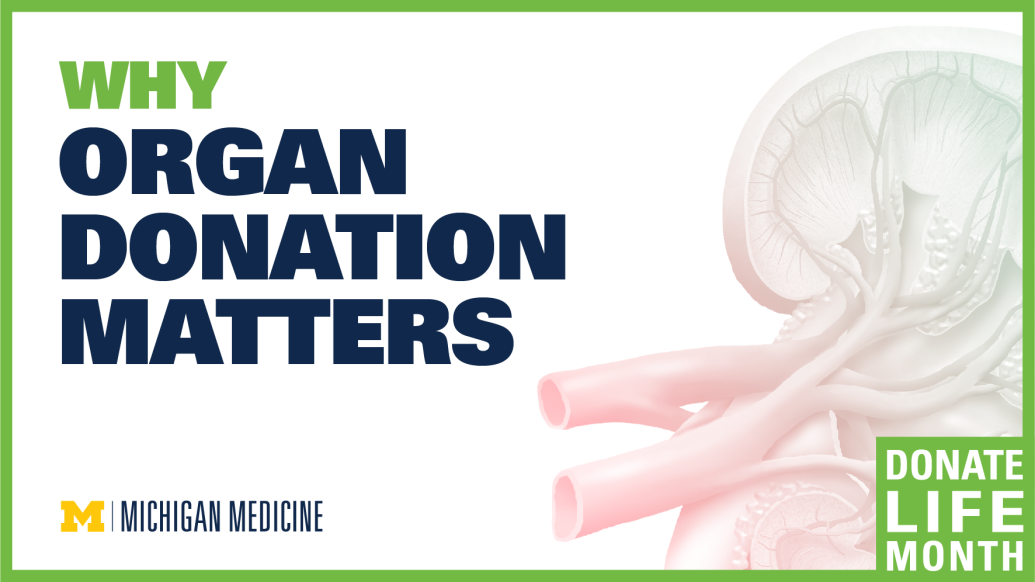
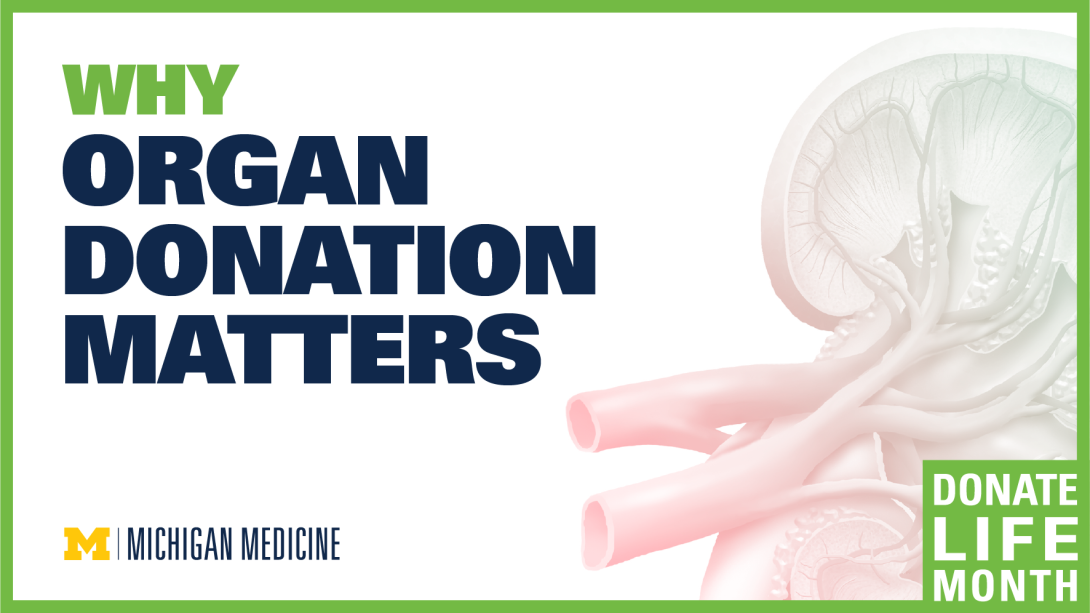
Every person who signs up to be an organ donor offers hope — and, ultimately, a gift of life — to others in need.
And the need is great: Nearly 120,000 people in the United States are waiting for an organ transplant, according to the Organ Procurement and Transplantation Network.
"These transplants are life-saving and life-enhancing," says Randall S. Sung, M.D., an associate professor of surgery at the University of Michigan Medical School. "It's easier than ever to be a donor."
Registration is simple and free. It can be completed online or when you obtain or renew a driver's license.
In honor of National Donate Life Month in April, consider the importance of the gesture with these facts and figures.
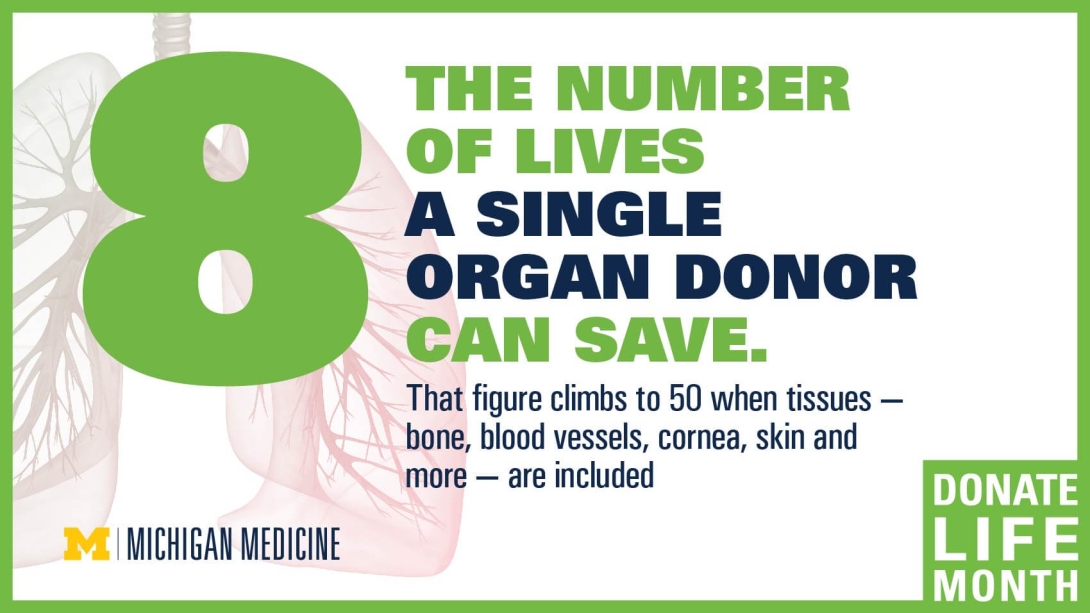
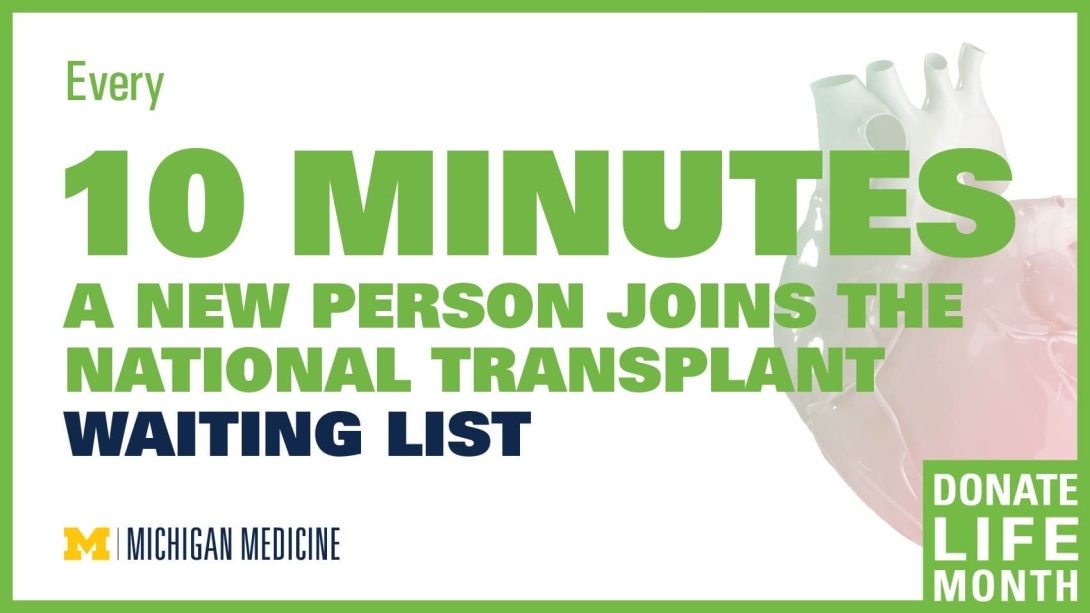
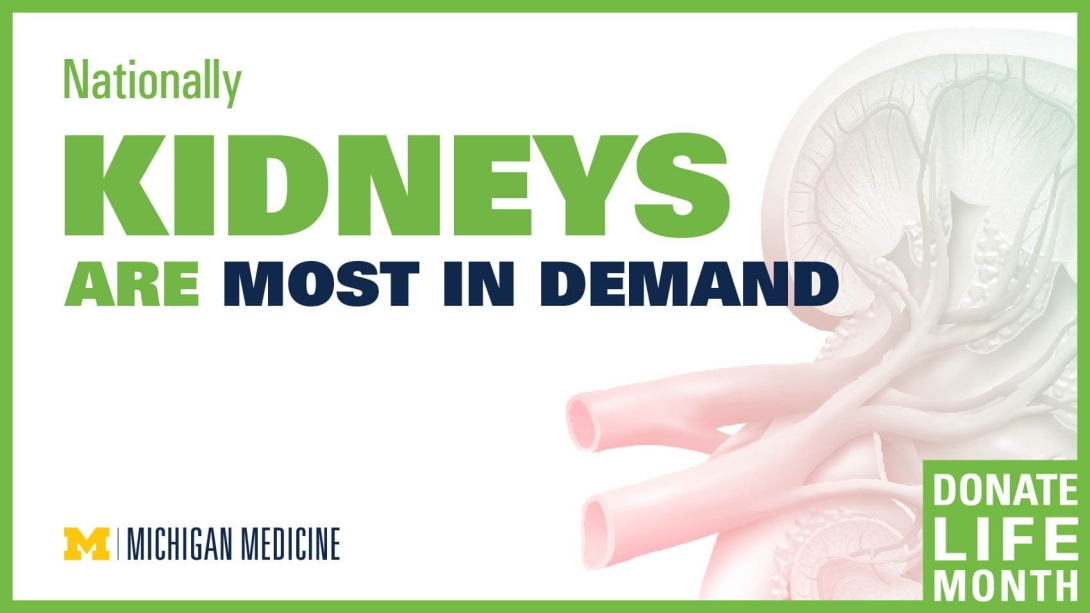
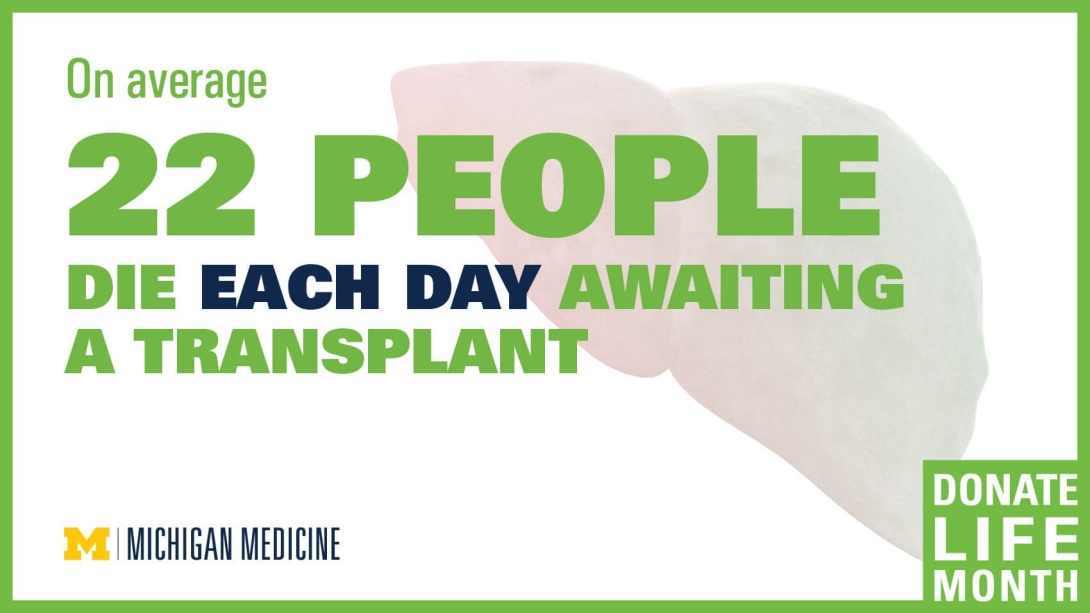
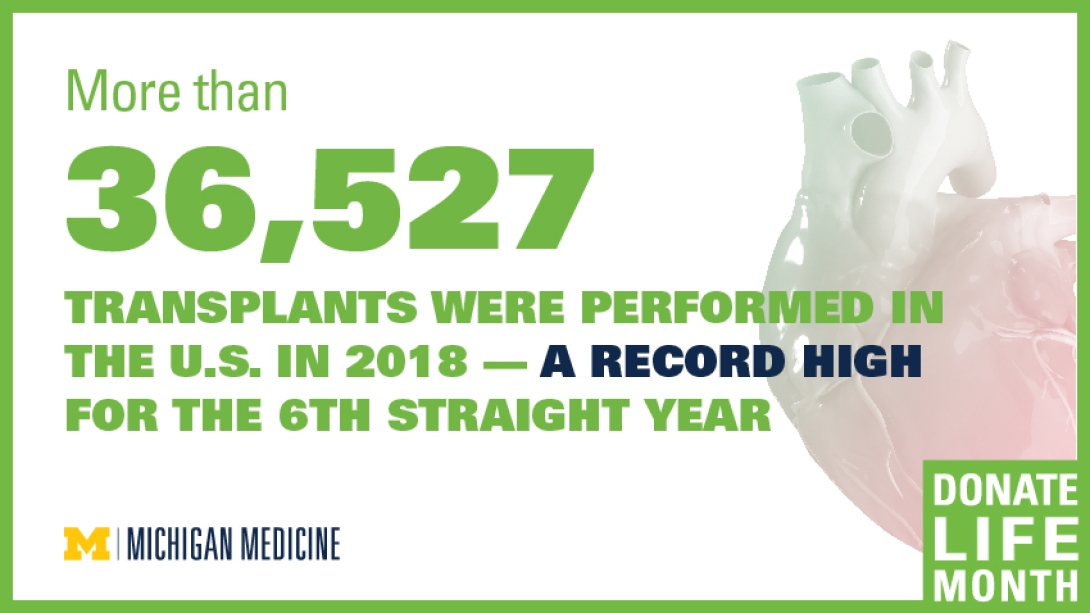
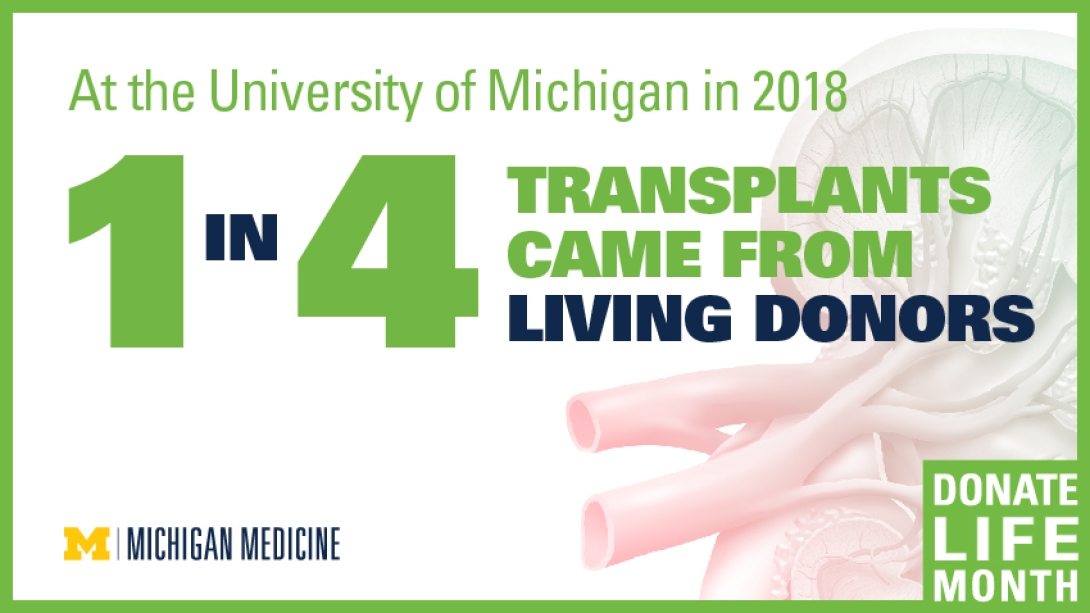
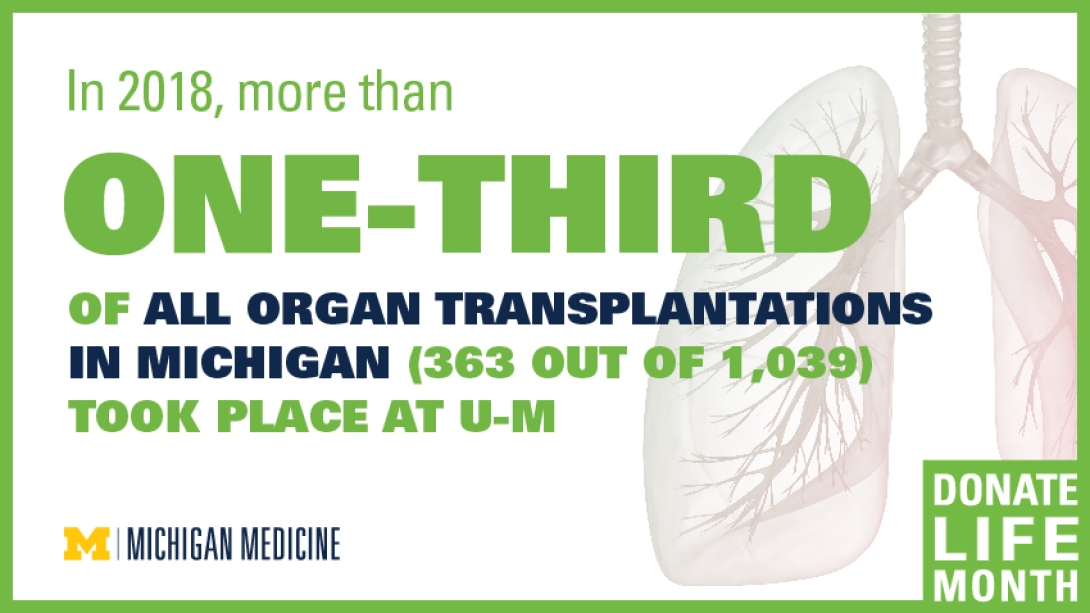
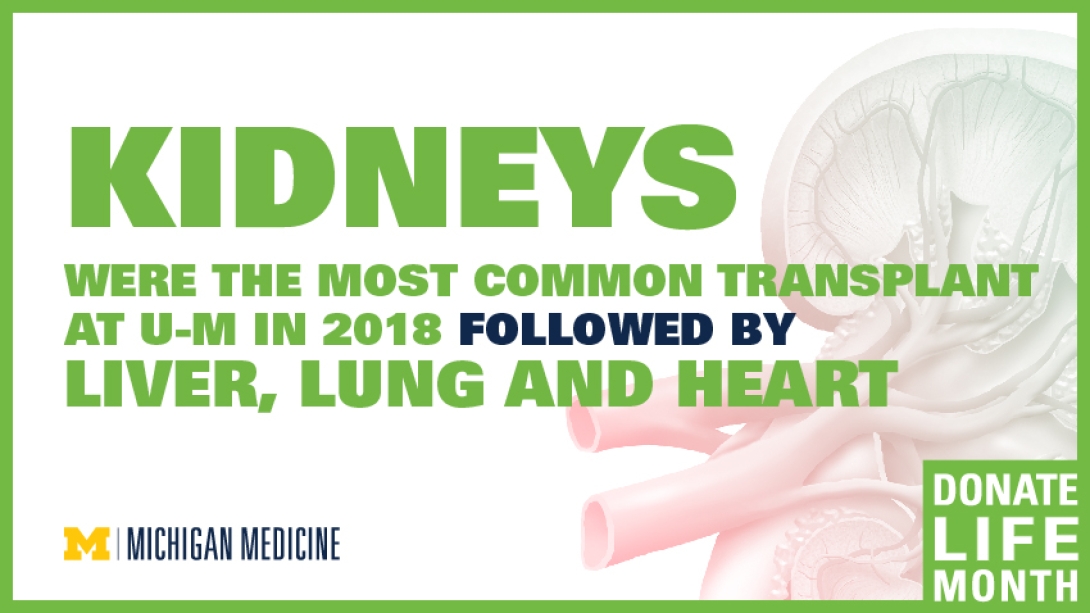
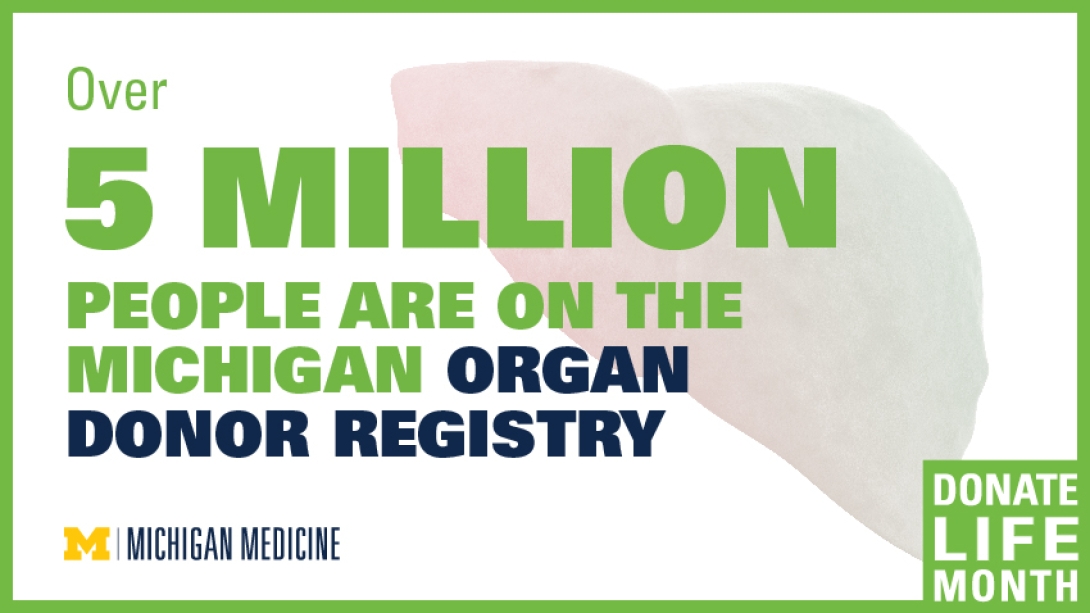

Explore a variety of health care news & stories by visiting the Health Lab home page for more articles.

Department of Communication at Michigan Medicine
Want top health & research news weekly? Sign up for Health Lab’s newsletters today!





